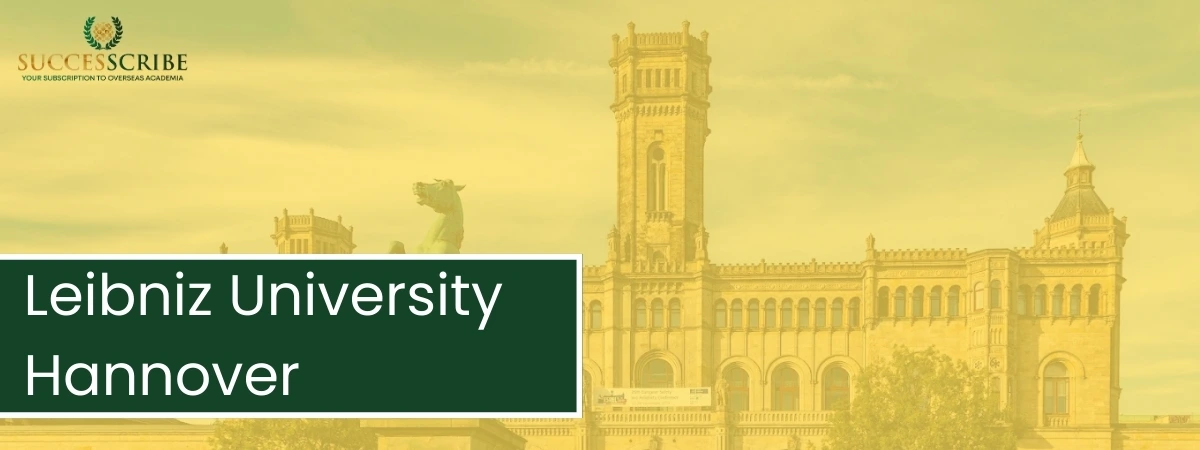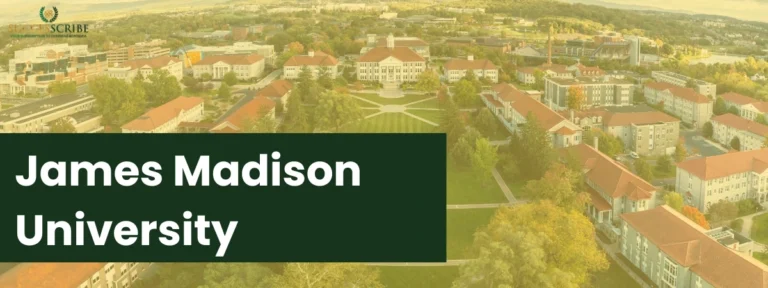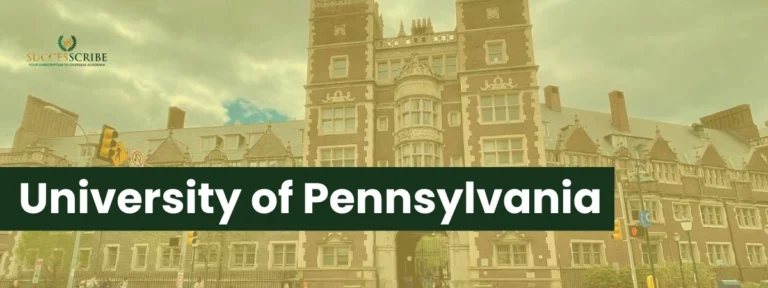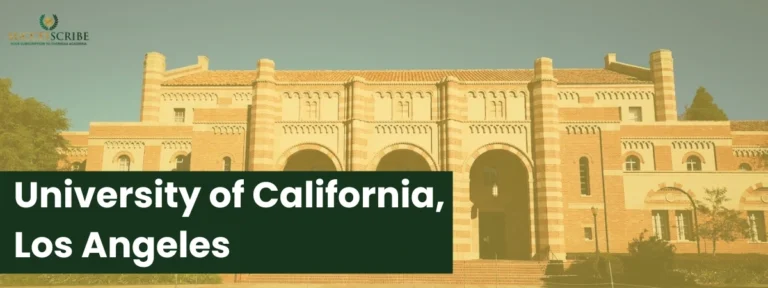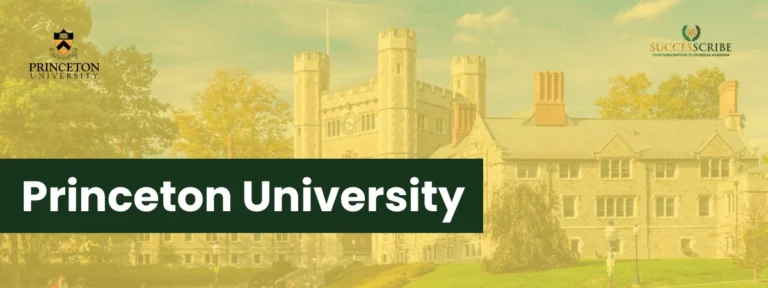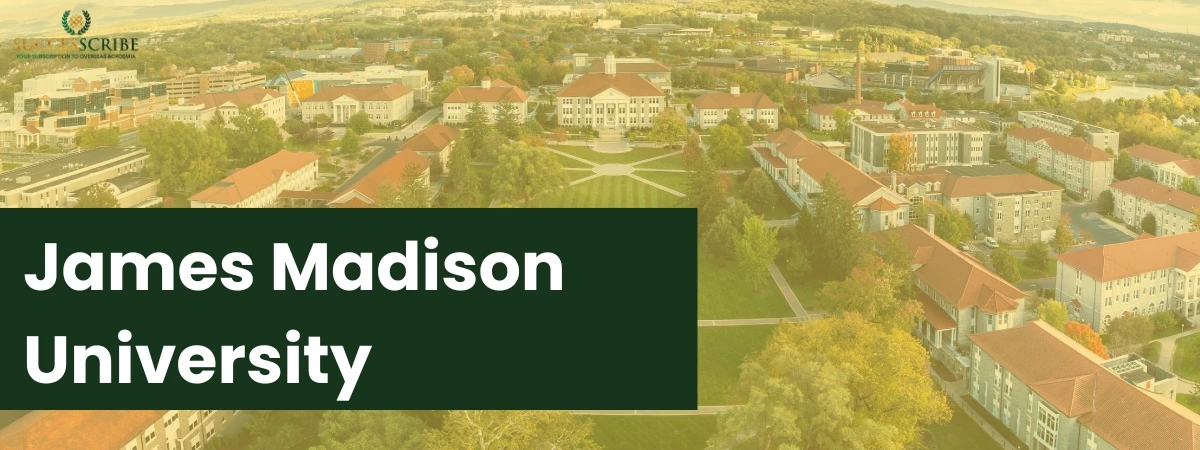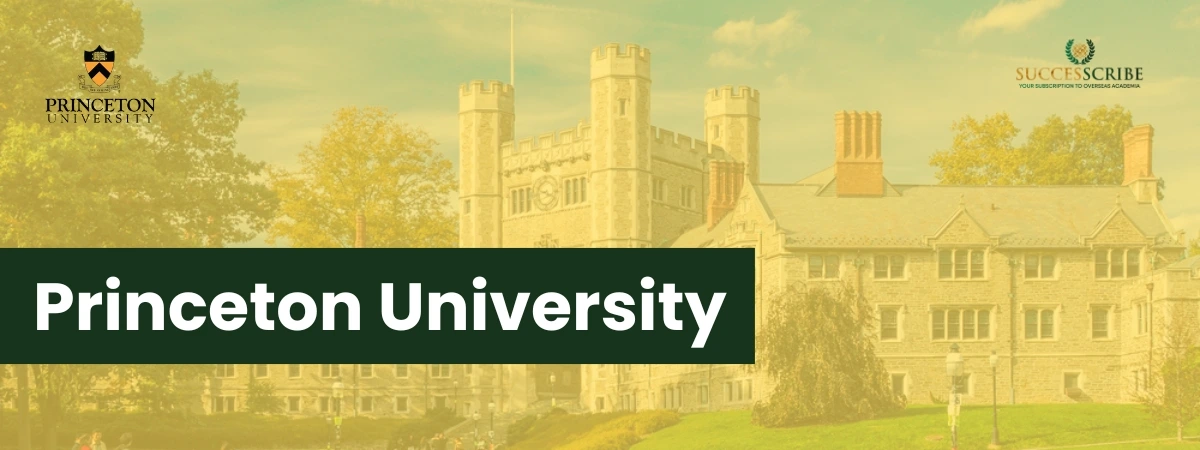Nestled in the vibrant, green capital of Lower Saxony, Leibniz Universität Hannover (LUH) stands as a beacon of academic excellence, innovative research, and deep-rooted tradition. With a history stretching back to 1831, it has evolved from a higher vocational school into one of Germany’s nine leading universities of technology, a distinction earned through its membership in the prestigious TU9 alliance. The university’s name, adopted in 2006, pays homage to Gottfried Wilhelm Leibniz, the polymath and philosopher who embodies the spirit of interdisciplinary inquiry that defines the institution to this day. Leibniz’s motto, theoria cum praxi (theory with practice), is not merely a historical footnote but the living, breathing ethos that guides teaching, learning, and research across all its faculties.
Key Highlights – Leibniz University Hannover
| Feature | Details |
| Founded | 1831 (as Higher Trade School of Hanover) |
| Total Students | 26,000+ |
| International Students | 3,900 (15%) from 110+ countries |
| Faculties | 9 major faculties covering sciences, engineering, humanities, law, and economics |
| Degree Programs | 83 total (32 Bachelor’s, 51 Master’s) |
| English-Taught Programs | 13 fully English, 5 with English majors, 8 bilingual |
| Global Rankings | QS: #433 (2026); THE: 351–400 |
| Tuition Fees | €0 (public university, standard programs) |
| Semester Contribution | €434.91 (includes student union, transport, cultural fees) |
| Living Costs in Hannover | €700–€900/month (on average) |
| Application Deadlines | Summer Intake: mid-January; Winter Intake: mid-July |
| Graduate Employment Rate | 85% employed within 6 months of graduation |
Top Programs at Leibniz University Hannover

Leibniz University Hannover offers a wide spectrum of programs across nine faculties. While most undergraduate programs are taught in German, several Master’s programs are available in English, making them highly attractive for international applicants.
Bachelor’s Programs (primarily German-taught)
For students comfortable with German, LUH offers strong bachelor’s degrees in engineering, sciences, law, and humanities. A few interdisciplinary programs have bilingual (German/English) modules.
| Faculty | Popular Bachelor’s Programs | Notes |
| Mechanical Engineering | B.Sc. Mechanical Engineering | Strong industry links with VW, Continental, and Siemens. |
| Electrical Engineering & Computer Science | B.Sc. Computer Science, B.Sc. Electrical Engineering | Requires TestDaF/DSH for admission. |
| Economics & Management | B.Sc. Business Administration and Economics | One of the largest faculties, good for EU exchange programs. |
| Mathematics & Physics | B.Sc. Mathematics, B.Sc. Physics | Some English modules available. |
| Civil Engineering & Geodetic Science | B.Sc. Civil Engineering | Excellent for students aiming at TU9 technical network. |
Most bachelor’s programs require German proficiency (DSH-2/TestDaF 4). Students aiming for an English-taught bachelor’s should consider joint programs (often offered with other universities) or prepare via Studienkolleg.
Master’s Programs (many English-taught, ideal for internationals)
At the graduate level, Leibniz University Hannover is much more internationalized. Several M.Sc. programs are designed specifically for international students, often taught entirely in English.
| Faculty | Popular Master’s Programs | Highlights |
| Mechanical Engineering | M.Sc. Mechanical Engineering | Research-oriented, strong placement opportunities in automotive & manufacturing. |
| Electrical Engineering & Computer Science | M.Sc. Computer Science, M.Sc. Electrical Engineering and Information Technology | Focus on AI, robotics, embedded systems. |
| Civil Engineering & Geodetic Science | M.Sc. Water Resources and Environmental Management (WATENV) | Highly ranked program, DAAD scholarship support. |
| Natural Sciences | M.Sc. Optical Technologies | Specialized in photonics, lasers, and imaging. |
| Architecture & Landscape Sciences | M.Sc. Environmental Planning | Interdisciplinary, sustainability-focused. |
| Economics & Management | M.Sc. Economics and Management Science | Internationally oriented, strong for research and consulting careers. |
| Renewable Energy Focus | M.Sc. Energy Economics & Engineering (within engineering faculty) | Growing demand in Europe’s green energy sector. |
Suggested Post: RWTH Aachen University Acceptance Rate
Rankings of Leibniz University Hannover
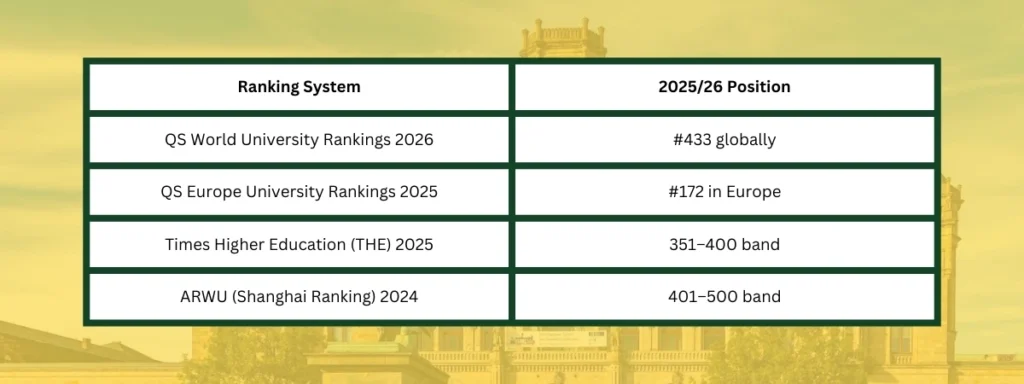
Leibniz University Hannover (LUH) is consistently ranked among the top 400–450 universities worldwide. As a member of the TU9 group of German Institutes of Technology, it holds a strong reputation, especially in engineering, computer science, physics, and sustainability research.
Global & National Rankings
| Ranking System | 2025/26 Position | Category / Notes |
| QS World University Rankings 2026 | #433 globally | Reputation in engineering & technology is strong. |
| QS Europe University Rankings 2025 | #172 in Europe | Reflects academic reputation & faculty/student ratio. |
| Times Higher Education (THE) 2025 | 351–400 band | High score in research influence & international outlook. |
| ARWU (Shanghai Ranking) 2024 | 401–500 band | Recognized for publications, Nobel alumni association. |
Subject-Specific Rankings
LUH shines in certain disciplines due to its research excellence:
| Subject Area | QS 2025 Subject Rank | Highlights |
| Sustainability | #188 | Strong focus on renewable energy & environmental planning. |
| Physics & Astronomy | Top 150–200 | World-class optics and laser research facilities. |
| Mechanical & Electrical Engineering | Top 200–250 | Strong TU9 collaboration with German industries. |
| Computer Science & IT | Top 250–300 | Artificial intelligence, robotics, software engineering strengths. |
| Mathematics | Top 200 | Research-driven, good for PhD pathways. |
Suggested Post: Technical University Berlin QS Ranking
Faculties and Departments at Leibniz University Hannover
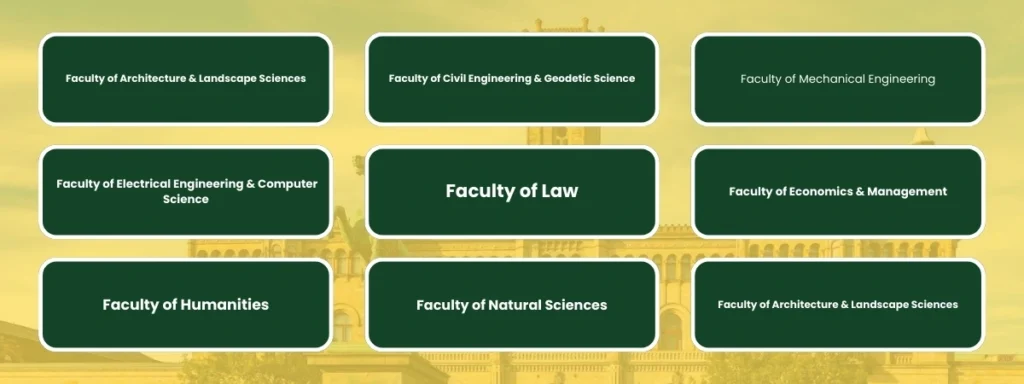
Leibniz University Hannover (LUH) is a comprehensive research university with 9 faculties, covering everything from engineering and natural sciences to law, economics, and the arts. Each faculty is structured into specialized departments and institutes, giving students wide academic and research opportunities.
| Faculty | Key Departments / Institutes | Highlights for Students |
| 1. Faculty of Architecture & Landscape Sciences | Architecture, Environmental Planning, Landscape Architecture | Focus on sustainable urban design and green cities. Strong ties to Hannover’s urban development projects. |
| 2. Faculty of Civil Engineering & Geodetic Science | Civil Engineering, Geodesy, Surveying, Hydrology | Known for infrastructure innovation and water resource management. Students often work on EU-funded projects. |
| 3. Faculty of Mechanical Engineering | Energy Systems, Production Engineering, Mechatronics, Robotics | Part of TU9 alliance; close links with German industries (Siemens, Volkswagen). Popular among international engineers. |
| 4. Faculty of Electrical Engineering & Computer Science | Electrical Engineering, Computer Science, Information Technology | Strong research in AI, robotics, embedded systems, 5G/6G technologies. Offers English-taught Master’s programs. |
| 5. Faculty of Law | Public Law, Private Law, International Law | Offers comparative legal studies. Limited English programs, but important for EU/German law research. |
| 6. Faculty of Economics & Management | Economics, Business Administration, Management Science | Industry-oriented; programs often include internships with German companies. |
| 7. Faculty of Humanities | Linguistics, History, Philosophy, Literature | Includes German as a Foreign Language programs; useful for internationals aiming to improve German proficiency. |
| 8. Faculty of Natural Sciences | Mathematics, Physics, Chemistry, Biology | Ranked highly in Physics & Mathematics; collaborates with research centers like Laser Zentrum Hannover (LZH). |
| 9. Faculty of Architecture & Landscape Sciences | Music, Arts, Media Studies (smaller institutes) | Encourages creativity and interdisciplinary research with technology & sciences. |
Tuition Fees & Cost Breakdown at Leibniz University Hannover
LUH remains one of the most affordable public universities in Germany for international and domestic students.
1. Tuition Fees
| Program Type | Tuition Fees |
| Bachelor’s & Consecutive Master’s | €0 |
| Long-term Study (exceeding regular duration + 6 semesters) | €500 extra per semester |
| Non-consecutive / Continuing Master’s (e.g., professional or MBA) | Subject to separate fee (varies by program) |
4. Semester Contribution – Mandatory Fee
All enrolled students must pay a semester fee (Semesterbeitrag) each semester, which includes services and a national transport ticket.
| Component | Amount (€) |
| Studentenwerk (student services) | 130.00 |
| Deutschland-Semesterticket (nationwide public transport) | 208.80 |
| Student body (AStA, cultural ticket) | 15.80 |
| Administrative contribution | 75.00 |
| Kulturticket (culture access) | 2.00 |
| Semester ticket default fund | 2.20 |
| Total per semester (Winter 2025/26) | €434.91 |
3. Living Expenses – Hannover (Average Monthly Cost)
According to LUH’s Studentenwerk and social survey data, student living costs in Hannover fall in the following range:
| Cost Category | Monthly Cost (€) |
| Estimated Monthly Cost | €965 – €1,106 |
| Average (based on social survey) | €842 (national average) |
Government requirement (for visa purposes): Students must show funds of €992/month (Federal requirement)
Scholarships & Financial Support at Leibniz University Hannover
LUH provides several funding options, ranging from merit-based scholarships to emergency grants, making it financially supportive for international students.
| Scholarship / Grant | Value & Duration | Eligibility & Application Period |
| Deutschlandstipendium | €300/month for 2 semesters | Open to both new and continuing students; selection is merit-based. Application: 1 July – 15 August Via LUH Portal |
| Lower Saxony Scholarship | One-time €500 payment | For students (Bachelor’s or Master’s) with excellent grades or first-generation status. Application schedule opens in winter term. |
| Emergency Grants (Notfall-Beihilfe) | Varies; one-time help in crisis | Non-EU students in acute financial emergencies |
| Degree Completion Grants (Studienabschlussbeihilfe) | Varies, paid monthly | For non-EU students in final thesis stage; applications accepted four times/year: 1–31 Jan, Mar, Jul, and Oct. |
| Other Scholarships & Support | Varies | Includes support via LUH alumni, research grants, DAAD listings, and BAföG-type national programs. |
Leibniz University Hannover Acceptance Rate
Leibniz University Hannover does not publish an official overall acceptance rate. When a university does not release this metric, third-party sites sometimes provide estimates; however, such numbers are not authoritative and should be treated cautiously. Program-level selectivity can vary (some programs have admission restrictions or numerus clausus).
Admission Criteria – International Applicants (Leibniz University Hannover)
Here are the admission requirements to study at Leibniz University Hannover:
1. Required Qualifications
| Program Type | Academic Requirement | Notes |
| Bachelor’s | Recognized school-leaving certificate equivalent to German Abitur | If unavailable, a VPD (Preliminary Review Documentation) via uni-assist is needed. |
| Master’s | Recognized Bachelor’s degree in a relevant subject | Non-EU applicants must generally obtain a VPD to confirm eligibility. |
2. Language Requirements
Bachelor’s Programs (mostly German-taught):
- Application: German B1
- Enrolment: German C1 (e.g., DSH-2, TestDaF ≥ 4).
Master’s Programs:
- Language requirements vary by program:
- Many require German C1
- Optical Technologies (Faculty of Mechanical Engineering) requires English C1.
- M.Sc. Computer Science accepts English C1, though some course materials may still be in German.
Accepted Certificates include IELTS, TOEFL, DSH, TestDaF, etc.
3. Application Portal & Process
- Bachelor’s Programs: Apply via LUH portal. Many programs are unrestricted admission, so meeting academic and language criteria usually secures a place. Restricted programs may implement selection or NC (Numerus Clausus).
- Master’s Programs:
Most follow the LUH portal application process.
Some require a VPD via uni-assist (especially for non-EU credentials).
4. Program-Specific Requirements & Deadlines
Faculty of Mechanical Engineering
- Degree prerequisite: Bachelor’s in a relevant field from a recognized institution.
- Language: German B2 (application) and C1 (enrolment), except Optical Technologies (English C1).
- Additional requirement: 20-week internship before Master’s thesis.
- Non-EU applicants: 31 May for Winter, 30 November for Summer.
Faculty of Architecture & Landscape Sciences (e.g., M.Sc. Environmental Planning)
- Motivation letter (max 5 pages)
- Work samples (max 10 pages)
- German language proof (DSH-2 for German-taught programs).
- Non-EU: 31 May (Winter) and 30 November (Summer)
Faculty of Architecture & Landscape Sciences (e.g., M.Sc. Environmental Planning)
- Motivation letter (max 5 pages)
- Work samples (max 10 pages)
- German language proof (DSH-2 for German-taught programs).
- Non-EU: 31 May (Winter) and 30 November (Summer)
Faculty of Civil Engineering (e.g., WATENV Master’s)
- Language: English C1 (IELTS or TOEFL) accepted.
- Application window: 1 Dec – 15 Jan for Winter intake.
5. Application Timeline
| Applicant Group | Program Type | Deadline (Winter Semester) |
| Non-EU applicants | Most Master’s | 31 May (apply for VPD well in advance) |
| EU applicants | Master’s | 15 July |
| Bachelor’s applicants | General (varies) | 15 July (Winter intake) / 15 Jan (Summer intake) |
6. Restricted vs Unrestricted Admission
Unrestricted Admission: Meets academic & language requirements → Admission likely. No NC applies.
Restricted Admission: Limited places, sometimes uses:
- Numerus Clausus (NC): based on academic performance
- Waiting time quota: up to 20% admission based on waiting semesters
- Special quotas (e.g., 5% for non-EU applicants)
Suggested Post: University of Freiburg tuition fees
Career Prospects for Graduates – Leibniz University Hannover

Leibniz University Hannover (LUH) offers strong career support, particularly for international students entering the German or regional job markets.
Career Support Services
| Service | Description |
| Internationals Welcome’ & ‘My Internship’ Program | Tailored support to help international students connect with regional companies and gain internships. |
| Career Counseling & Workshops | CV building, job application guidance, interview prep, and building German job-market readiness. |
| Career Dates (Fair) | Bi-annual fair with >50 companies offering internships and jobs; includes online prep sessions. |
| Job Portals and Employer Access | Exclusive job postings via LUH portal; alum engagement and direct company presentations. |
| Erasmus Internships & EU Exchange Support | Helps students secure internships across Europe; provides funding and administrative support. |
Graduate Employability
| Metric | Detail |
| Regional Labor Market Entry | >85% of graduates find employment within 6 months |
| Post-Study Residence Permit (Job-Seeker Visa) | Graduates have up to 18 months to secure employment. |
| Employer Partnerships | Includes VW, Siemens, Airbus, Continental, Hannover Re, and more. |
Average Salaries of LUH Graduates (By Discipline)
| Field of Study | Average Starting Salary (per year) |
| Computer Science / IT | €52,000 – €60,000 |
| Engineering (Mechanical, Electrical, Civil) | €48,000 – €55,000 |
| Natural Sciences (Physics, Chemistry, Biology) | €42,000 – €50,000 |
| Business & Economics | €45,000 – €52,000 |
| Humanities & Social Sciences | €38,000 – €44,000 |
| Law (post LL.M. / PhD paths) | €55,000 – €65,000 |
Suggested Post: Ludwig Maximilian University of Munich
Notable Alumni & Figures – Leibniz University Hannover
LUH boasts a heritage rich in academics, politics, science, and culture, its alumni include Nobel laureates, pioneering politicians, and innovators in technology.
| Name | Field / Role | Contribution / Achievement |
| Friedrich Bergius | Chemistry (Faculty) | Nobel Prize in Chemistry (1931); senior academic assistant at TH Hannover (1912–1919). |
| Gerhard Ertl | Chemistry (Faculty) | Nobel Prize in Chemistry (2007); professor & institute director at LUH (1968–1973). |
| J. Hans D. Jensen | Physics (Faculty) | Nobel Prize in Physics (1963); lecturer & professor of theoretical physics (1937–1947). |
| Wilhelm Busch | Literature & Arts | Poet, humorist, illustrator; regarded as a pioneer of modern comics in Germany. |
| Carl F. W. Borgward | Engineering, Automotive | Founder of Borgward car company; studied as guest auditor at LUH. |
| Irmgard Flügge-Lotz | Mathematics & Engineering | German-American engineer; pioneer in control theory & discontinuous automatic control. |
| Henrich Focke | Aviation | Aviation pioneer; co-founder of Focke-Wulf aircraft manufacturer. |
| Pascual Jordan | Physics | Theoretical physicist; contributed to quantum mechanics and quantum field theory. |
| Carl Adam Petri | Computer Science | Mathematician; invented Petri Nets, key in modeling distributed systems. |
| David McAllister | Politics | CDU politician; Prime Minister of Lower Saxony (2010–2013), Member of European Parliament. |
| Utz Claassen | Business & Management | Economist; CEO of EnBW; senior executive roles incl. Volkswagen. |
| Sami Haddadin | Robotics & AI | Professor; Director of Munich School of Robotics & Machine Intelligence; German Future Prize (2017). |
| Edelgard Bulmahn | Politics & Education (Ambassador) | Former Federal Minister of Education & Research (1998–2005); LUH Leibniz Ambassador. |
| Bala Subramanian Ramani | Academia & International Relations | PhD from LUH; advanced Indo-German academic cooperation & skilled migration programs. |
| Vito Cecere | Diplomacy (Ambassador) | German Ambassador to Austria; strong role in science diplomacy; LUH Leibniz Ambassador. |
Application Deadlines – Leibniz University Hannover
Here are the application Deadlines by Semester Intake:
| Program / Applicant Type | Semester Intake | Application Period | Notes |
| Bachelor’s – Restricted Programs (NC) | Winter | 1 June – 15 July | Applies to programs with admission limits (Numerus Clausus). |
| Bachelor’s – Unrestricted Programs | Winter | 1 June – 30 September | Open admission, more flexible deadlines. |
| Bachelor’s – Higher Semester (Unrestricted) | Summer | 1 December – 15 January | Only for transfer/higher semester entry. |
| Master’s – EU/German Applicants | Winter | 1 June – 15 July | Standard Master’s intake deadline. |
| Master’s – EU/German Applicants | Summer | 1 December – 15 January | For programs offering Summer entry. |
| Master’s – Non-EU Applicants (Early Deadline) | Winter | 15 April – 31 May | Early application ensures visa processing & VPD (uni-assist). |
| Master’s – Non-EU Applicants (Early Deadline) | Summer | 15 October – 30 November | Same early requirement for non-EU. |
| Enrolment (All Admitted Students) | Winter | 1 June – 30 September | Final enrollment after admission confirmation. |
| Enrolment (All Admitted Students) | Summer | 1 December – 31 March | Final enrollment for Summer intake. |
Conclusion
Leibniz University Hannover hosts 30,000+ students, including 4,500 international students from 110+ countries, and offers 180+ programs across 9 faculties. With zero tuition fees (only a semester contribution of €380–€440) and an employment rate above 85% within 6 months, LUH combines affordability with strong career outcomes. Ranked among the top 500 universities worldwide, it is home to Nobel laureates and global innovators, making it a premier choice for ambitious students worldwide.
FAQs
How many students study at LUH, and how many are international?
1. LUH has approximately 26,079 students enrolled in Winter Semester 2024/25.
2. About 15% are international students, which amounts to around 3,900 students.
How many English-taught degree programs are offered at Leibniz University Hannover?
1. LUH offers 83 degree programs in total, including 32 bachelor’s and 51 master’s.
2. Among these, there are 13 fully English-taught programs, plus 5 programs with English majors and 8 bilingual ones.
Does LUH charge tuition fees?
No tuition fees for standard Bachelor’s and Master’s programs. Long-term study fees apply if you exceed your standard study time by more than six semesters.
What is the semester fee?
The semester contribution for Winter Semester 2025/26 is €434.91, covering student services, transport, administration, and cultural access.
What notable rankings does LUH hold?
1. As of QS World University Rankings 2026, LUH ranks approximately #433 globally.
2. According to THE World University Rankings , LUH falls in the 351–400 range globally.
Related Post
Sample SOP for Germany student visa
Part time jobs in Germany for students
Germany student visa rejection reasons
Banks in Germany for international students

